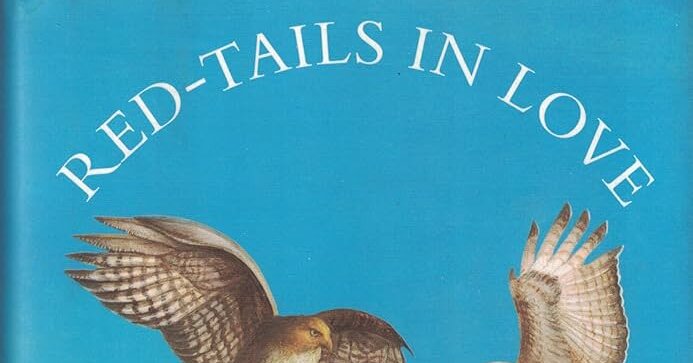Marie Winn, a writer known for her documentation of the avian sensation Pale Male, a red-tailed hawk in Central Park, passed away in Manhattan at the age of 88. After beginning her career writing about childhood in the 1970s and 1980s, Winn transitioned to nature writing with a column in The Wall Street Journal in 1989, leading her to become involved in the drama surrounding Pale Male in New York City.
After spotting Pale Male, a unique red-tailed hawk in Central Park in 1991, Marie Winn and other bird watchers closely followed his activities. Pale Male made a hunting ground near Fifth Avenue his favorite spot, where he would swoop down to catch pigeons fed by a man. The bird watchers, known as “the Regulars,” became captivated by Pale Male’s hunting and nesting habits, eagerly watching his courtship with various female hawks.
Pale Male eventually decided to settle at 927 Fifth Avenue, an apartment building with a view of Central Park. The bird watchers closely observed his mating habits, naming his mates and documenting their activities. However, in 2004, Pale Male and his new mate, Lola, faced eviction from the building’s co-op board due to complaints about droppings and rat carcasses. This decision sparked protests and media attention, with residents expressing their dismay at the potential loss of the beloved hawks.
After the co-op board reversed its decision in response to pressure from the National Audubon Society, Pale Male and Lola were able to return to their nest site. The event was met with relief and joy from supporters, and the hawks were observed rebuilding their nest shortly after the ban was lifted. Pale Male’s celebrity status grew, with people admiring his resilience and connection to the urban environment.
Marie Winn’s journey through the Pale Male saga was just one chapter in her diverse writing career. Born in Prague in 1936, Winn emigrated to New York City with her family in 1939. She pursued a career in journalism, publishing books for young readers as well as social critiques on topics like television and childhood development. Winn also translated works by Czech writers, showcasing her versatile writing talents.
Following Pale Male’s story, Marie Winn continued her nature writing with a book on urban wildlife in Central Park in 2008. She reflected on the impact of Pale Male’s popularity and the unique connection he formed with the city and its residents. In her writing, Winn captured the essence of Pale Male and his significance as a beloved figure in the urban wildlife landscape, leaving a lasting legacy in the hearts of all who followed his story.


